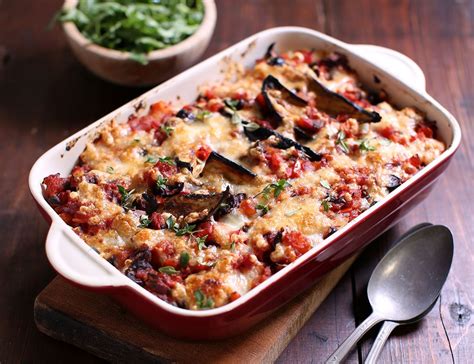Discover the benefits of adding spice to vegetarian dishes and learn creative ways to add heat to your meals with top 5 spicy
Introduction to Spicy Vegetarian Recipes
Contents
Introduction to Spicy Vegetarian Recipes
When it comes to vegetarian cooking, one way to add variety and depth of flavor to your meals is by incorporating spices. Not only do spices add a kick of heat, but they also contribute unique and complex flavors that can elevate any dish. Whether you’re a fan of bold and fiery flavors or prefer a milder heat, there are countless ways to infuse your vegetarian dishes with spice.
One of the great things about spicy vegetarian cooking is the health benefits it offers. Many spices are known for their anti-inflammatory and antioxidant properties, making them a wonderful addition to any vegetarian diet. Not to mention, the heat from spices can also help to speed up your metabolism and aid in digestion, making them a valuable asset to any vegetarian meal plan.
When it comes to incorporating spices into your cooking, the options are endless. From classic Indian spices like curry powder and garam masala to Latin American spices like adobo and chipotle, there are countless options to choose from. These spices can be used in everything from stir-fries and chilis to soups and salads, allowing you to get creative with your vegetarian cooking.
So if you’re looking to add some excitement and flavor to your vegetarian meals, look no further than incorporating spices. With a wide range of health benefits and an endless array of spicy options, spicy vegetarian cooking is sure to take your meals to the next level.
Benefits of Adding Spice to Vegetarian Dishes
Adding spices to vegetarian dishes not only adds flavor and excitement to your meals, but it also has a myriad of health benefits. Spices are rich in antioxidants and have anti-inflammatory properties, which can help improve overall health and well-being. By incorporating spices into your vegetarian cooking, you can enhance the nutritional value of your meals and promote better digestion.
Furthermore, adding spices to vegetarian dishes can help to reduce the need for added salt and sugar in your cooking. This is particularly beneficial for those looking to manage their blood pressure and blood sugar levels
Common Spices Used in Vegetarian Cooking
When it comes to cooking vegetarian dishes, the spices used can make a world of difference in terms of flavor and aroma. Vegetarian cooking relies heavily on the use of various spices to enhance the taste of the dishes. Some of the most common spices used in vegetarian cooking include coriander, cumin, turmeric, ginger, and garlic. These spices not only add a depth of flavor to the dishes but also offer a range of health benefits.
Coriander is often used in both ground and whole seed form in vegetarian cooking. It adds a citrusy and slightly sweet flavor to the dishes, making it a versatile spice that pairs well with a variety of ingredients. Cumin is another staple in vegetarian cooking, known for its warm and earthy flavor. It is often used in curry powders, chili powders, and spice blends, adding a depth of flavor to the dishes.
Turmeric is widely used in vegetarian cooking for its vibrant yellow color and earthy flavor. It is known for its anti-inflammatory and antioxidant properties, making it a popular choice for health-conscious individuals. Ginger and garlic are also commonly used in vegetarian dishes for their pungent and aromatic flavors, adding a zing to the dishes.
By incorporating these common spices into vegetarian cooking, you can elevate the flavors of your dishes and create a delightful culinary experience. Whether you’re making a hearty stew, a flavorful curry, or a vibrant salad, these spices are essential for adding depth and complexity to vegetarian meals.
Creative Ways to Add Heat to Vegetarian Meals
Vegetarian meals can often be perceived as bland or lacking in flavor, but by incorporating spices and heat, you can create bold and exciting dishes that are sure to satisfy your taste buds. One of the most creative ways to add heat to vegetarian meals is by experimenting with different spice blends. Mixtures like curry powder, chili powder, or jerk seasoning can instantly elevate the flavor profile of dishes like stir-fries, soups, and stews.
Another great way to add heat to vegetarian meals is by using fresh chili peppers. Whether you prefer the mild heat of jalapenos or the intense spiciness of habaneros, adding fresh chilies to your meals can provide a fiery kick that will wake up your palate. You can chop them, slice them, or even puree them to incorporate them into your recipes.
One creative technique for adding heat to vegetarian meals is by grilling or roasting your vegetables. This cooking method not only adds a smoky flavor to your vegetables but also enhances their natural sweetness while adding a subtle heat. Grilled or roasted vegetables can be used in salads, wraps, or served as a side dish to complement the main course.
Additionally, you can experiment with fermented foods like kimchi or hot sauce to add heat to your vegetarian meals. Fermented foods not only bring a unique tangy flavor but also pack a spicy punch that can liven up any dish. Add a spoonful of kimchi to your rice bowls or drizzle some hot sauce over your tacos to add an extra layer of heat and complexity.
Top 5 Spicy Vegetarian Recipes to Try
Spicy vegetarian recipes offer a flavorful and healthy alternative to traditional meat-based dishes. By incorporating a variety of spices into your meals, you can create satisfying and delicious dishes that appeal to both vegetarians and meat-eaters alike. Whether you’re a fan of bold, fiery flavors or just looking to add a little heat to your meals, these top 5 spicy vegetarian recipes are sure to impress.
One of the most popular and versatile spicy vegetarian recipes is spicy black bean chili. This hearty dish is packed with protein and fiber from the black beans, and it gets its heat from a blend of spices like cumin, chili powder, and smoked paprika. Serve it topped with chopped cilantro, diced avocado, and a dollop of cooling sour cream for the perfect balance of flavors and textures.
If you’re in the mood for something a little more exotic, consider trying a spicy Thai coconut curry. This fragrant and creamy dish features a rich coconut milk base infused with spices like ginger, lemongrass, and red curry paste. Load it up with your favorite vegetables, tofu, or protein of choice for a satisfying and aromatic meal that’s perfect for chilly nights.
For a quick and easy weeknight dinner, look no further than spicy vegetarian fajitas. These sizzling fajitas are a breeze to make and can be customized with any combination of bell peppers, onions, mushrooms, or any other veggies you have on hand. Seasoned with a zesty blend of spices like chili powder, cumin, and garlic powder, these fajitas are sure to become a family favorite.
If you’re a fan of bold and vibrant flavors, consider whipping up a batch of spicy vegetarian pad thai. This classic Thai noodle dish gets its signature heat from a blend of spices like tamarind paste, sriracha, and red pepper flakes. Tossed with crunchy bean sprouts, peanuts, and a squeeze of lime, this spicy pad thai is the perfect balance of sweet, sour, and spicy.











